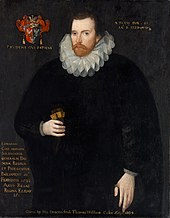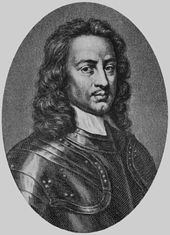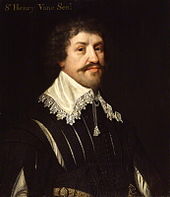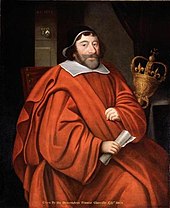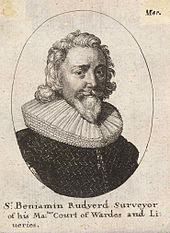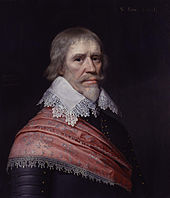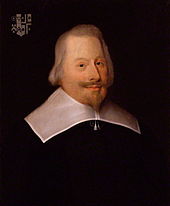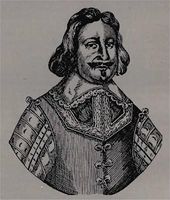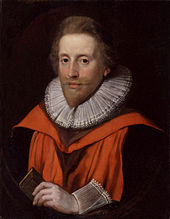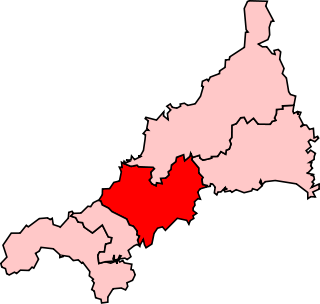|
| Constituency | Members | Notes |
|---|
| Bedfordshire | Sir Beauchamp St John
Sir Oliver Luke | |
| Bedford | Sir Alexander St John
Richard Taylor | |
|
| Constituency | Members | Notes |
|---|
| Berkshire | Sir Richard Lovelace
Sir Robert Knollys | |
| Windsor | Sir Charles Howard
Sir Robert Bennet | |
| Reading | Anthony Barker
John Saunders | |
| Wallingford | Sir George Simeon
Samuel Dunch | |
| Abingdon | Robert Hyde | |
|
| Constituency | Members | Notes |
|---|
| Buckinghamshire | Sir Francis Goodwin
Sir William Fleetwood | |
| Buckingham | Sir Thomas Denton
Richard Oliver | |
| Wycombe | Richard Lovelace
Arthur Goodwin | |
| Aylesbury | Sir John Dormer
Henry Borlase | |
|
| Constituency | Members | Notes |
|---|
| Cambridgeshire | Sir Edward Peyton, 2nd Baronet
Sir John Cutts | |
| Cambridge University | Robert Naunton
Barnaby Gough | |
| Cambridge | Richard Foxton
Thomas Meautys | |
|
| Constituency | Members | Notes |
|---|
| Cheshire | Sir William Brereton
Sir Richard Grosvenor | |
| City of Chester | Edward Whitby
John Ratcliffe | |
|
| Constituency | Members | Notes |
|---|
| Cornwall | Bevil Grenville
John Arundell | |
| Launceston | John Harris
Thomas Bond | |
| Liskeard | Sir Edward Coke
Nicholas Hele | |
| Lostwithiel | Edward Salter
George Chudleigh | |
| Truro | Barnaby Gough
John Trefusis | Gough/Gooch sat for Cambridge replaced by Sir John Catcher
Browne Willis gives Samuel for John Trefusis |
| Bodmin | Sir John Trevor
James Bagg | |
| Helston | William Noy
Thomas Stafford | |
| Saltash | Sir Thomas Trevor
Sir Thomas Smith | |
| Westlow | Heneage Finch
Christopher Harris | |
| Grampound | John Hampden
Sir Robert Carey | |
| Eastlow | Sir John Walter
Jerome Horsey | |
| Camelford | Sir Henry Carey
Edward Carr | |
| Penryn | Robert Jermyn
Sir Francis Crane | |
| Tregoney | William Hakewill
Thomas Malet | |
| St Ives | John Lord Pawlet
Robert Bacon | |
| Mitchel | Richard Carew
John St Aubyn | |
| Bossiney | John Wood
Ambrose Manaton | |
| Fowey | Jonathan Rashleigh
John Treffry | |
| St Germans | Richard Tisdale
Sir Richard Buller | |
| St Mawes | Edward Wrightington
William Hockmere | Brown Wilis gives John for William Hockmere |
| Newport | Sir Edward Barrett
Sir Robert Killigrew | |
| Callington | Henry Rolle
James Lord Wriothesley | |
|
| Constituency | Members | Notes |
|---|
| Cumberland | Sir George Dalston
Sir Henry Curwen | |
| Carlisle | Sir Henry Vane
George Butler | |
|
| Constituency | Members | Notes |
|---|
| Derbyshire | William Lord Cavendish
Sir Peter Fretchville | |
| Derby | Edward Leech
Timothy Leeving (Recorder) | |
|
| Constituency | Members | Notes |
|---|
| Devon | Sir Edward Seymour, 2nd Baronet
John Drake | |
| Exeter | John Prowse
Ignatius Jordan | |
| Totnes | Sir Edward Giles
Richard Rood (merchant) | |
| Barnstaple | John Delbridge
Pentecost Dodderidge | |
| Plymouth | John Glanville
Thomas Sherville (merchant) | |
| Plympton Erle | Sir William Strode
Sir Warwick Hele | |
| Tavistock | Francis Glanville
Sir Baptist Hicks | |
| Bere Alston | Thomas Wise
Thomas Keighley of London | |
| Clifton Dartmouth Hardness | William Nyell (merchant)
Roger Matthew (Merchant) | |
| Tiverton | John Bampfield
John Davie | |
|
| Constituency | Members | Notes |
|---|
| Dorset | Sir John Strangways
Sir Thomas Trenchard | |
| Dorchester | Sir Francis Ashley
John Parkins | Ashley resigned his place for Sir Thomas Edmondes and when Edmondes chose another seat he was re-elected for Dorchester |
| Poole | Sir Walter Erle
Sir George Hussey | |
| Shaftesbury | Thomas Sheppard
William Beecher | Both expelled – replaced by Percy Herbert and Ralph Hopton |
| Weymouth and Melcombe Regis | John Freke
Christopher Erle
Matthew Pitt
Giles Green | |
| Lyme Regis | John Poulett
Robert Hassard | |
| Wareham | Sir William Pitt
John Trenchard | |
| Bridport | John Strode
John Browne | |
| Corfe Castle | Sir Thomas Hatton, 1st Baronet
Sir Thomas Hammond | |
|
| Constituency | Members | Notes |
|---|
| Essex | Sir Francis Barrington Bt
Sir John Deane | |
| Colchester | William Towse
Edward Alford | |
| Maldon | Julius Caesar
Henry Mildmay | BW has the members for Maldon and Harwich transposed, which looks to be an error |
| Harwich | Sir Thomas Cheek
Edward Grimston | |
|
| Constituency | Members | Notes |
|---|
| Gloucestershire | Sir Robert Tracy
Sir Maurice Berkeley | |
| Gloucester | John Browne
Anthony Robinson | |
| Cirencester | Sir Thomas Roe
Thomas Nicholas | |
| Tewkesbury | Sir Dudley Diggs
Giles Brydges | |
|
| Constituency | Members | Notes |
|---|
| Hampshire | Sir Henry Wallop
Sir John Jephson | |
| Winchester | Richard Tichborne
William Savage | |
| Southampton | Sir Thomas Fleming
Henry Sherfield | |
| Portsmouth | Sir Daniel Norton
Sir Benjamin Rudyerd | |
| Petersfield | Richard Norton
Sir John Hippisley | |
| Newtown | John Ferrar
Sir Thomas Barrington, 2nd Baronet | Ferrar sat for Tamworth- replaced by Sir William Harington |
| Newport | Sir Richard Worsley, 1st Baronet
Sir William Uvedale | |
| Yarmouth | Arthur Bromfield
Thomas Risley | |
| Christchurch | Sir George Hastings
Nathaniel Tomkins | |
| Stockbridge | Sir Richard Gifford
Sir William Ayloffe, 1st Baronet | |
| Whitchurch | Thomas Jervoise
Sir Robert Oxenbridge | |
| Lymington | Sir William Doddington
Henry Compton | |
| Andover | John Shuter
Richard Venables | |
|
| Constituency | Members | Notes |
|---|
| Herefordshire | Sir John Scudamore
Fitzwilliam Coningsby | |
| Hereford | James Rodd
Richard Weaver | |
| Leominster | Francis Smallman
William Beecher | |
|
| Constituency | Members | Notes |
|---|
| Hertfordshire | Sir Henry Cary
Sir Charles Morrison, 1st Baronet | |
| St Albans | Thomas Richardson
Robert Shute | Richardson was Speaker |
| Hertford | William Ashton
Thomas Fanshawe | |
|
| Constituency | Members | Notes |
|---|
| Huntingdonshire | Richard Beavill
Sir Robert Payne | |
| Huntingdon | Sir Henry St John
Miles Sandys | |
|
| Constituency | Members | Notes |
|---|
| Kent | Robert Viscount Lisle
Sir George Fane | |
| Canterbury | John Finch
Sir Robert Newington | |
| Rochester | Sir Thomas Walsingham (younger)
Henry Clerke | |
| Queenborough | James Palmer
William Frowde | |
| Maidstone | Sir Francis Fane
Sir Francis Barnham | |
|
| Constituency | Members | Notes |
|---|
| Lancashire | Sir John Ratcliffe
Sir Gilbert Hoghton, 2nd Baronet | |
| Lancaster | Sir Humphrey May
Sir Thomas Fanshawe | |
| Preston | Sir Edward Mosley
Sir William Pooley | |
| Clitheroe | Sir Thomas Walmsley
William Fanshawe | |
| Liverpool | Thomas May
William Johnson | |
| Wigan | Sir Thomas Gerard, 1st Baronet
Roger Downes | |
| Newton | Sir George Wright
Richard Kippax | |
|
| Constituency | Members | Notes |
|---|
| Leicestershire | Sir George Hastings
Sir Henry Hastings | |
| Leicester | Sir Richard Moryson
Sir William Herrick | |
|
| Constituency | Members | Notes |
|---|
| Lincolnshire | Sir George Manners
Sir Thomas Grantham | |
| Lincoln | Sir Lewis Watson, 1st Baronet
Sir Edward Ayscough | |
| Boston | Sir Thomas Cheek
Anthony Irby | |
| Grimsby | Sir Christopher Wray
Henry Pelham | |
| Grantham | Sir William Airmine
Clement Cotterell | |
| Stamford | Richard Cecil
John Wingfield | |
|
| Constituency | Members | Notes |
|---|
| Middlesex | Sir Francis Darcy
Sir Gilbert Gerard, Bt | |
| Westminster | Sir Edward Villiers
Edmund Doubleday | Doubleday died 3 days after election - replaced by William Mann |
| City of London | Sir Thomas Lowe
Robert Heath
Robert Bateman
William Towerson | |
|
| Constituency | Members | Notes |
|---|
| Monmouthshire | Sir Edmund Morgan
Charles Williams | |
| Monmouth Boroughs | Thomas Ravenscroft | |
|
| Constituency | Members | Notes |
|---|
| Norfolk | Sir Hamon le Strange
Drue Drury | |
| Norwich | Sir Robert Rous
William Denny | |
| King's Lynn | Sir Matthew Clerke
John Wallis | |
| Yarmouth | Benjamin Cooper
Edward Owner | |
| Castle Rising | John Wilson
Robert Spiller | |
| Thetford | Sir Thomas Holland
Framlingham Gawdy | |
|
| Constituency | Members | Notes |
|---|
| Northamptonshire | Sir William Spencer
Sir Edward Montagu | Montagu became a peer - replaced by Richard Knightley |
| Peterborough | Mildmay Fane
Walter Fitzwilliam | |
| Northampton | Richard Spencer
Thomas Crew | |
| Brackley | Edward Spencer
Sir Thomas Wenman | |
| Higham Ferrers | Charles Montagu | |
|
| Constituency | Members | Notes |
|---|
| Northumberland | Sir William Grey
Sir Henry Widdrington | |
| Newcastle | Sir Henry Anderson
Sir Thomas Ridell | BW gives Sir Francis for Sir Henry Anderson |
| Morpeth | Robert Brandling
John Robson | Election of Robson, a Clergyman, invalidated - replaced by Ralph Fetherstonhaugh |
| Berwick upon Tweed | Sir John Selby
Sir Robert Jackson | |
|
| Constituency | Members | Notes |
|---|
| Nottinghamshire | Sir Gervase Clifton
Sir George Chaworth | |
| Nottingham | Michael Purefoy
George Lassells | |
| East Retford | Sir Nathaniel Rich
Edward Wortley | |
|
| Constituency | Members | Notes |
|---|
| Oxfordshire | Sir Richard Wenman
Sir William Cope | |
| Oxford University | Sir John Bennet
Sir Clement Edmondes | |
| Oxford | Sir John Brooke
Thomas Wentworth | |
| Woodstock | Sir James Whitelocke
Philip Cary | |
| Banbury | Sir William Cope | |
|
| Constituency | Members | Notes |
|---|
| Rutland | Sir Guy Palmes
William Bulstrode | BW corrigenda changes Palmer to Palmes |
|
| Constituency | Members | Notes |
|---|
| Shropshire | Sir Robert Vernon
Sir Francis Kynaston | |
| Shrewsbury | Sir Richard Newport
Francis Berkeley | |
| Bridgnorth | Sir John Hayward
William Whitmore | |
| Ludlow | Spencer Compton, Lord Compton
Richard Tomlins | |
| Wenlock | Sir Edward Lawley
Thomas Wolryche | |
| Bishops Castle | Francis Roberts
Gilbert Cornwall | |
|
| Constituency | Members | Notes |
|---|
| Somerset | Charles Berkley
Robert Hopton | |
| Bristol | John Whitson
John Guy | |
| Bath | Sir Robert Phelips
Sir Robert Pye | |
| Wells | Sir Edward Rodney
Thomas Southwood | |
| Taunton | Thomas Brereton
Lewis Pope | |
| Bridgwater | Edward Popham
Roger Warre | |
| Minehead | Francis Pearce
Sir Robert Lloyd | |
| Ilchester | Richard Wynn |
|
| Constituency | Members | Notes |
|---|
| Staffordshire | Sir William Bowyer
Thomas Crompton | |
| Lichfield | William Wingfield
Richard Weston | |
| Stafford | Matthew Cradock
Sir Richard Dyott | |
| Newcastle under Lyme | John Davies
Edward Kyrton | |
| Tamworth | Sir Thomas Puckering Bt
John Ferrers | BW corrigenda changes Ferrers from Henry to John |
|
| Constituency | Members | Notes |
|---|
| Suffolk | Sir Robert Crane, 1st Baronet
Thomas Clinch | |
| Ipswich | Robert Snelling
William Cage | |
| Dunwich | Clement Coke
Thomas Bedingfield | |
| Aldeburgh | Sir Henry Glemham
Charles Glemham | |
| Orford | Sir Lionel Tollemache
Sir Roger Townshend | |
| Eye | Sir Roger North
Sir John Crompton | |
| Sudbury | Edward Osbourne
Brampton Gurdon | |
| Bury St Edmunds | Sir Thomas Jermyn
John Woodford | |
|
| Constituency | Members | Notes |
|---|
| Surrey | Sir George More
Sir Nicholas Carew | |
| Southwark | Richard Yarward
Robert Bromfield | |
| Reigate | Thomas Glemham
Robert Lewis | |
| Bletchingly | John Hayward
Henry Lovell | |
| Gatton | Sir Thomas Gresham
Thomas Bludder | |
| Guildford | Sir Robert More
John Murray | |
| Haslemere | Sir Thomas Grimes
Sir William Browne | |
|
| Constituency | Members | Notes |
|---|
| Sussex | Sir Edward Sackville
Christopher Neville | |
| Chichester | Sir Edward Cecil
Thomas Whatman | |
| Horsham | Thomas Cornwallis
John Middleton | |
| Midhurst | John Smith
Richard Lewknor | |
| Steyning | Thomas Shirley
Sir Edward Fraunceys | |
| Lewes | Sir George Goring
Richard Amhurst | |
| New Shoreham | Sir John Morley
Sir John Leedes | |
| Bramber | Thomas Bowyer
Robert Morley | |
| Arundel | Sir Lionel Cranfield
Sir Henry Spiller | Cranfield created a peer, Sep 1622 and replaced Nov 1622 by Sir Richard Weston |
| East Grinstead | Sir Henry Compton
Thomas Pelham | |
|
| Constituency | Members | Notes |
|---|
| Warwickshire | Sir Fulke Greville
Sir Thomas Lucy | Greville ennobled - replaced by Sir Francis Leigh |
| Coventry | Sampson Hopkins
Henry Sewall | |
| Warwick | Sir Greville Verney
Sir John Coke | |
|
| Constituency | Members | Notes |
|---|
| Westmorland | Sir Henry Clifford
Sir Thomas Wharton | |
| Appleby | Sir Arthur Ingram
Thomas Hughes | |
|
| Constituency | Members | Notes |
|---|
| Wiltshire | Sir Francis Seymour
Sir Edward Bayntun | |
| Salisbury | Roger Gauntlett
Thomas Hussey | |
| Wilton | Sir Thomas Tracy
Henry Nevill | Nevill ennobled in 1622 - replaced by Thomas Morgan |
| Downton | Sir Carew Raleigh
Thomas Hinton | |
| Devizes | Sir Henry Ley
John Kent | |
| Great Bedwyn | Sir Francis Popham
Sir Giles Mompesson | |
| Malmesbury | Sir Henry Poole
Sir Edward Wardour | |
| Ludgershall | Alexander Chocke
William Sotwell | |
| Chippenham | Edward Hungerford
John Baily | |
| Westbury | Sir James Ley
Sir Miles Fleetwood | |
| Cricklade | Thomas Howard
Sir Carew Reynell | |
| Hindon | Sir Edmund Ludlow
Sir John Davies | |
| Old Sarum | George Myne
Thomas Brett | |
| Calne | John Duckett
John Pym | |
| Heytesbury | Sir Thomas Thynne
Henry Ludlow | |
| Marlborough | William Seymour, Lord Beauchamp
Richard Digges | Seymour ennobled in 1621 and replaced by Sir Walter Devereux |
| Wootton Bassett | Richard Harrison
John Wrenham | |
|
| Constituency | Members | Notes |
|---|
| Worcestershire | Sir Thomas Lyttelton, 1st Baronet
Sir Samuel Sandys | |
| Worcester | Sir Robert Berkley
John Coucher | |
| Droitwich | Sir Thomas Coventry
John Wilde | Coventry replaced by Ralph Clare |
| Evesham | Sir Thomas Biggs, 1st Baronet
Anthony Langston | |
| Bewdley | Sir Thomas Edmondes | |
|
| Constituency | Members | Notes |
|---|
| Yorkshire | Sir George Calvert
Sir Thomas Wentworth | |
| York | Sir Robert Askwith (Alderman)
Christopher Brooke | Brown Willis gives Christopher Broderick for Brooke |
| Kingston upon Hull | John Lister
Maurice Abbot | |
| Scarborough | Sir Richard Cholmeley
William Conyers | |
| Knaresborough | Sir Henry Slingsby
Sir Richard Hutton | |
| Richmond | Sir Talbot Bowes
William Bowes | |
| Beverley | Sir Christopher Hilliard
Edmund Scott | |
| Aldborough | Christopher Wandesford
John Carvile | |
| Thirsk | Thomas Belasyse
John Belasyse | |
| Hedon | Sir Matthew Boynton, 1st Baronet
Sir Thomas Fairfax of Walton | |
| Ripon | Sir Thomas Posthumous Hoby
William Mallory | |
| Pontefract | George Skillet
Edwin Sandys | |
| Boroughbridge | Sir Ferdinando Fairfax
George Withered | Listed in Browne Willis corrigenda |
|
| Constituency | Members | Notes |
|---|
| Hastings | Samuel Moore
James Lasher | |
| Dover | Sir Henry Mainwaring
Sir Richard Young | |
| Sandwich | Sir Edwin Sandys
Sir Robert Hatton | Hatton's election declared void - replaced by John Burroughes |
| Romney | Francis Fetherston
Sir Peter Manwood | |
| Hythe | Sir Peter Heyman
Richard Zouche | |
| Rye | Emanuel Gifford
John Angell | |
| Winchelsea | Sir Thomas Finch
Edward Nicholas | |
|
| Constituency | Members | Notes |
|---|
| Anglesey | Richard Williams | |
| Beaumaris | Sampson Eure | |
| Brecknockshire | Sir Henry Williams | |
| Brecknock | Walter Pye | |
| Cardiganshire | Richard Pryse | |
| Cardigan | Walter Overbury | |
| Carmarthenshire | Sir John Vaughan | |
| Carmarthen | Henry Vaughan | |
| Carnarvonshire | John Griffith | |
| Carnarvon | Nicholas Griffith | |
| Denbighshire | Sir John Trevor | |
| Denbigh Boroughs | Hugh Myddelton | |
| Flintshire | Sir Roger Mostyn | |
| Flint | William Ravenscroft | |
| Glamorgan | William Price | |
| Cardiff | William Herbert | |
| Merioneth | William Salisbury | |
| Montgomeryshire | Sir William Herbert | |
| Montgomery | Edward Herbert | |
| Pembrokeshire | John Wogan | |
| Pembroke | Lewis Powell | |
| Haverford West | Sir James Perrot | |
| Radnorshire | James Price | |
| Radnor | Charles Price | |



